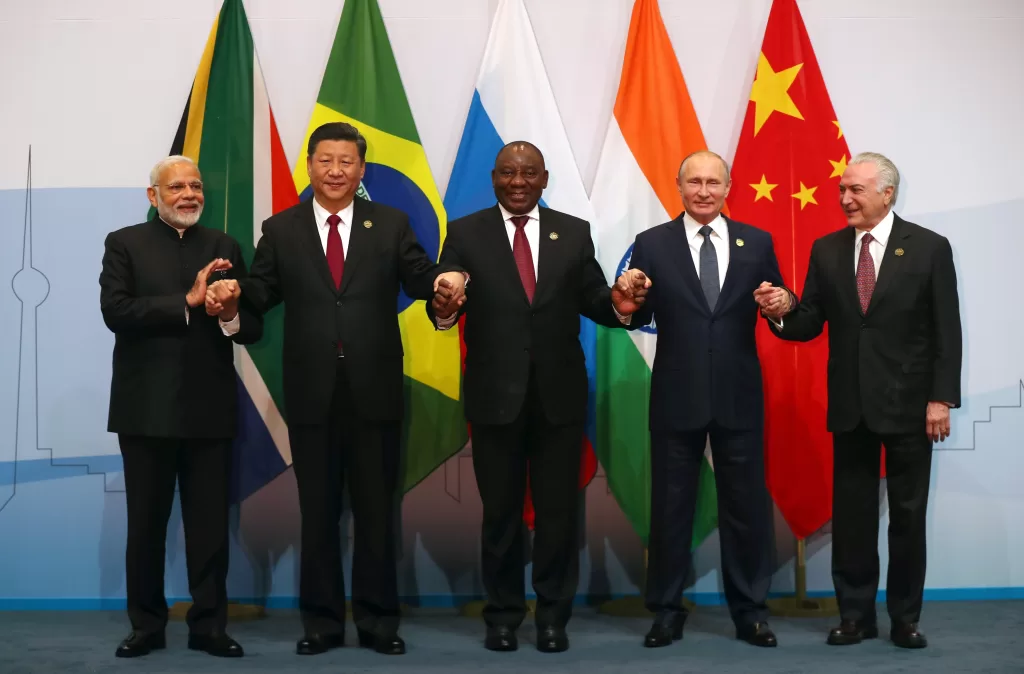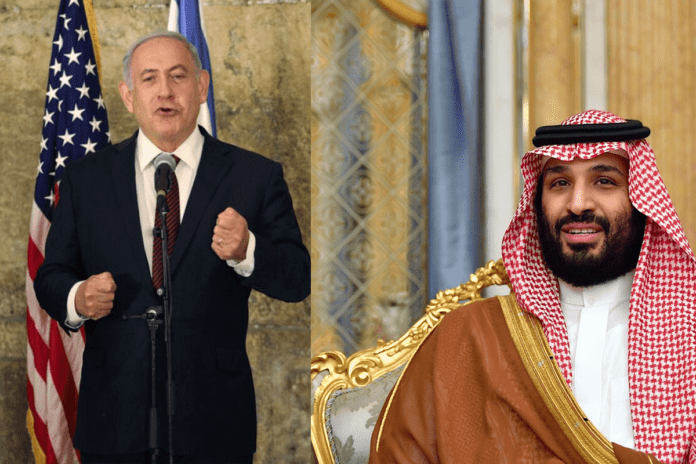Context
In the previous articles, we have been examining the various dimensions of Arab-Israeli rapprochement that got underway as a consequence of the Abraham Accords, signed during the Trump administration in 2020. As a result, UAE, Bahrain, Sudan, and Morocco officially recognized Israel. Progressively alarmed by the growing Chinese involvement in the region, demonstrated by the Chinese facilitated Saudi-Iran Détente reached in March, the Biden administration had speeded up its efforts to normalize ties between Saudi Arabia and Israel as well.
Another factor of concern has been the changing politics of Israel – as Netanyahu seemed to have lost interest with the two-state solution. During his visit to the US to attend the UN General Assembly meetings in September, Saudi Crown Prince Mohammad bin Salman indicated that the normalization process was moving along well, a sentiment shared at the time by Israeli Prime Minister Netanyahu.
Since the signing of Abraham Accords, the paranoia on the Palestinian side had been mounting. All along, it was not clear what the agreement would mean for the Palestinians. Will it include a statehood for Palestinians and cessation of settlements? While the first Saudi envoy for Palestinian Authority Nayef al-Sudairi did visit the West Bank in September – it proved to be late to tame Palestinian concerns, especially Hamas. From a purely Israeli point of view, if the Arab states that have traditionally supported the Palestinian cause, agree to recognize Israel – than the leverage of Palestinian in any negotiations is greatly reduced.
Things finally blew up on October 7 when Hamas members stormed into Israel killing almost 1400 and taking about 200 hostages. In reprisal, close to 4,650 Palestinians have been killed to date by Israeli bombardments – and the ground operation is imminent. Fears are growing the Israeli ground operation into Gaza will likely result in Hezbollah also becoming fully entangled and thus widening the war. Moreover, the street pressure in Sunni Arab capitals is likely to push the respective governments to respond – especially if Iran holds true to its statements of not holding back if Israeli military actions continue.
Since the attack, President Biden has offered full support to Israel towards its aim to eliminate Hamas, and at the same time he clarified that all Palestinians are not Hamas: “The vast majority of Palestinians are not Hamas. Hamas does not represent the Palestinian people.”
In his October 19 Speech, Biden stated: “History has taught us that when terrorists don’t pay a price for their terror, when dictators don’t pay a price for their aggression, they cause more chaos and death and more destruction.”
“As hard as it is, we cannot give up on peace. We cannot give up on a two-state solution,” Biden stated.

BRICS Nations Respond
As opposed to the US, China and Russia have stopped short of blaming Hamas while demanding cease fire and offering to mediate. Both have also affirmed that they will coordinate their policy for the Middle East. In essence their position is close to those adopted by the Arab nations. According to media reports, China’s Middle East envoy Zhai Jun told his Russian counterpart, Mikhail Bogdanov, during his current trip to the region: “The fundamental reason the Palestinian-Israeli conflict has reached its current state is that the legitimate national rights of the Palestinian people have not been protected.”
On the other hand, South Africa has adopted a more nuanced approach and has stated that its backing for Palestine cause does not mean it supports Hamas. It generally equates its own experience under apartheid as the same as being experienced by Palestinians. South Africa’s Department of International Relations and Cooperation (DIRCO) stated that its Foreign Minister Naledi Pandor got a request to speak with Ismail Haniyeh – and that the call was in line with nations policy to “engage with all parties in facilitating dialogue.”
On the other hand, India seems to have given-up its position of backing the Palestinians and has stood squarely with Israel. One of the reasons for that could be because the ruling Bhartiya Janata Party (BJP) has given up any hope of receiving Muslim vote in the election next year. This seems similar to the United States where because of the policies adopted by Democratic Party in the Middle East and South Asia, Democratic American Muslims are thinking to shift in mass to the Republican Party. The dilemma being the Republican Party is even more hardline when it comes to Iran and the Palestinian Issue. It was during the Trump administration in 2018 that the US decided to shift its embassy to Jerusalem and withdraw from the Iran nuclear deal (JCPOA) – painstakingly reached during Obama’s tenure. However, Trump had built good relations with Saudi Arabia and Imran Khan in Pakistan. India may also be evaluating the postures of the Arab world against Hamas vis a vis the Kashmir situation – and what it terms as cross-border terrorism from Pakistan.
Changing Middle East and South Asia
The recognition of Israel by Saudi Arabia would have represented a titanic event in the Islamic world – especially as it relates to the Core versus the Peripheral Islamic world. As a result of Abraham Accords, Pakistan’s other Arab and GCC allies were moving closer to Israel as well. It would have brought tremendous pressure on the peripheral Islamic nations, especially Pakistan which takes clues from Saudi Arabia when it comes to the maters of Palestinians. On the one hand, Pakistan is China’s closest strategic partner, which is also expanding ties with Iran.
In earlier assessment, PoliTact had noted: “While most of the GCC nations are autocratic – a broken democracy still exists in Pakistan. Irrespective, under the present circumstances, Saudi recognition of Israel anytime soon, will gravely unsettle the political and security situation of the country, particularly if it were to be accompanied by economic and political pressure from Saudi Arabia, and other GCC nations, to follow suit. As for the timeline, President Biden would want an agreement before the US elections next year. These high-stake decisions need public debate and political ownership – that are presently missing in Pakistan. In fact, the crackdown against PTI hardly creates a conducive environment to build consensus on these fast moving regional and global changes.”

Since the October 7 attack, the scenario has switched, and the Saudi-Israel normalization has all but collapsed. A whole lot will now depend on if Israel launches a ground operation in Gaza. If the war theater expands, the following pressures are likely to play out for Pakistan:
- Most likely Pakistan will have to side with the Arab world and that will make it stand at odds with US and Israel. Pakistan’s caretaker foreign minister Jalil Abbas Jilani had stated on October 8, “We stand in solidarity with Palestinians and call for an immediate end to the violence and oppression by Israeli occupation forces. A viable and sovereign state of Palestine must be established on the basis of pre-1967 borders and UN resolutions.”
- If Pakistan sides with the US and Israel – it will put it at odds with its other ally China, its neighbor Iran, and its own public opinion. A lot will depend on If Iran directly or indirectly intervenes in the conflict – and what position Arab states take at that point. China and Russia will likely both support Iran.
- Moreover, if Pakistan stays idle it will greatly dent its position on Kashmir. And if in the future India takes a similar approach towards Kashmir – as Israel has now on Gaza – it will gravely complicate options for Pakistan.
The future of Abraham Accords and Saudi-Israel normalization now hangs on if Israel will launch a ground operation in Gaza. Reportedly, President Biden is doing his utmost to restrain Israel – and that was one of the aims of his visit. And if that can accomplished – then the Palestinians would have to be at the dead center of any future negotiations. In other words, there can be no Arab-Israel normalization without first settling the Palestinian issue.




